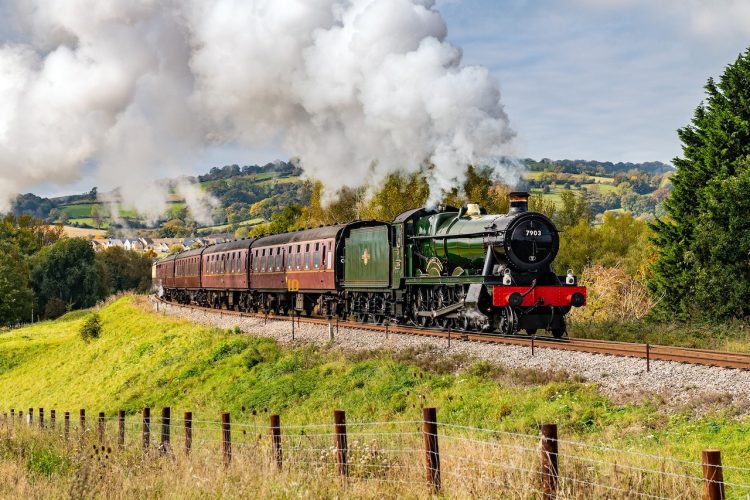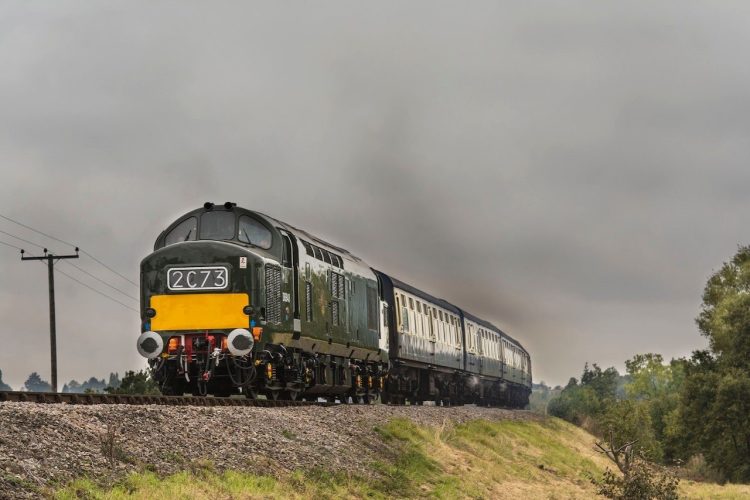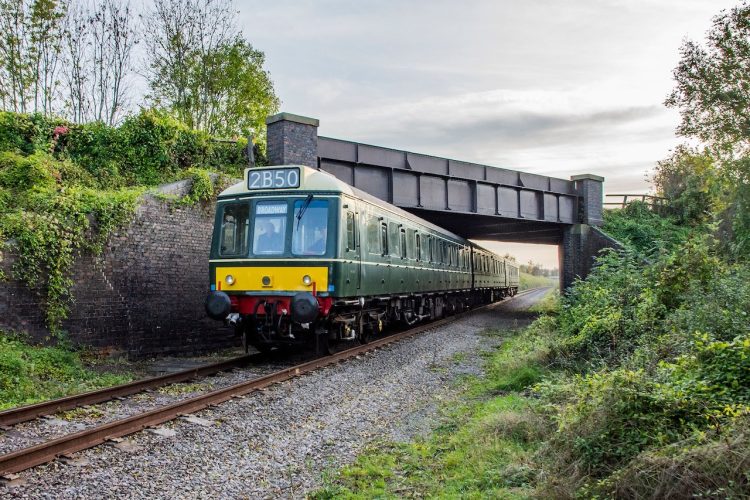Gloucestershire Warwickshire Steam Railway will be celebrating the ‘Swinging Sixties’ as it hosts a special event which will see some of its finest locomotives – Hall 7903, Class 37 D6948 and Class 117 operating in the stunning British Railways Green.
The event aims to evoke memories of the 1960s and will mark a wonderful day to remember for both rail enthusiasts and visitors alike. The event will also provide an array of stunning photo opportunities with the Cotswold countryside creating a delightful setting and the railway’s true green ‘wildlife corridor’ which features tree planting, landscaping, wildflowers, beehives and plenty more.
Train liveries have a fascinating and complex history with a vast array of colour schemes worn by locomotives and their rolling stock for more than 200 years.
The livery adorning the locomotives and multiple units through the 1960s came following a good deal of experimentation following the railway’s nationalisation in 1948 and a key aim to develop a unified identity. This task was not as straightforward as it may seem as a huge range of locomotives and rolling stock featured many different liveries.

The 1950s saw trials completed using locomotives in different colours from deep and light blue which was known as ‘Express Blue’ however this weathered poorly, maroon, light apple green and the vivid malachite green of the Southern Region.
1954 Finally saw the livery issue come together as a new green which was often called ‘British Railways Locomotive Green’ was implemented for British Railways express steam locomotives such as 35006 ‘P&O’ and 7903 ‘Foremarke Hall’. The green in question was close to the Great Western Railways ‘Brunswick Green’ and its specification was BS224 ‘Deep Bronze Green’ which was sometimes referred to as ‘Land-Rover Green’.
Locomotives which were used for mixed traffic often wore lined black which was close in style to the London & North Western Railway. Freight and Shunting locomotives wore plain black liveries, however as time moved forward, green became the colour of choice.

New diesel locomotives were also liveried in British Railways Green with a selection of variations such as dark green for mixed traffic diesels including BR Class 37/Type 3 and two-tone green for passenger diesel including BR Class 47/Type 4. Diesel Multiple Units had always been green with the iconic ‘cat’s whisker’ detail to the front and later featuring yellow warning panels as did diesel locomotives. Southern Region multiple units featured a separate green which was known as BR(SR)green.
Shades of green could vary between loco classes despite the adoption of the new British Railways green and could be due to the depot/works which applied the paint with factors determining the colour including the number of layers of paint applied, the type of varnish, pigment and even the suppliers of the paint.

Alongside the new green livery a brand new emblem was created which became known as the BR ‘Totem’ and to this day remains an icon of the railways seeing a lion emerging from a heraldic crown holding a spoked wheel and enclosed in a roundel displaying ‘British Railways’ across. Shortly after its introduction, the BR ‘Totem’ developed a nickname of the ‘Ferret & Dartboard’.
The mid-1960s saw the advent of the new British Rail’s Corporate identity emerge and saw the BR green livery slip away as ‘Rail Blue’ locomotive and Diesel Multiple Units were favoured.
To buy tickets for the event and to benefit from a 5% discount for buying online, please visit www.gwsr.com






Responses